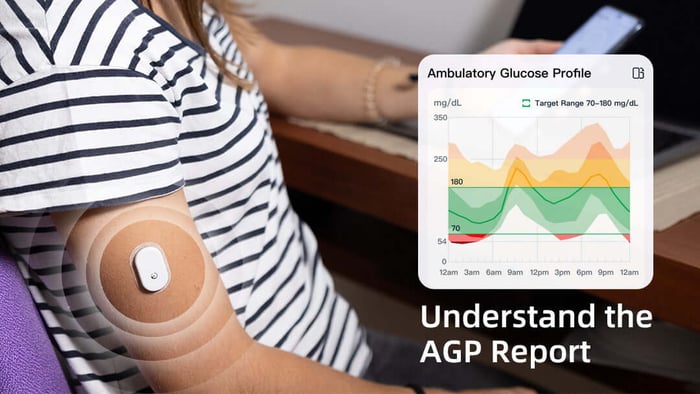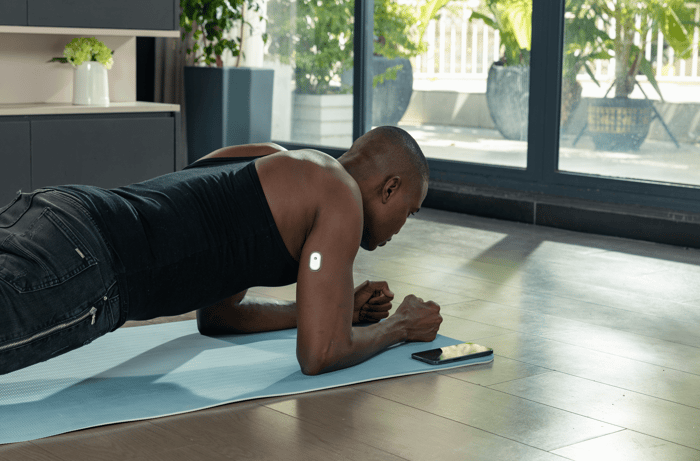Managing glucose levels is crucial for overall health, especially for individuals dealing with diabetes or those at risk of developing the condition. Several factors can influence glucose levels, and understanding them is key to maintaining optimal health. In this article, we'll explore the top 5 things that impact your glucose and provide practical tips on how to manage them effectively.
1. Diet and Nutrition: The Foundation of Glucose Management
One of the most significant factors affecting glucose levels is the food you consume. The type and quantity of carbohydrates, fats, and proteins in your diet play a crucial role. Opt for complex carbohydrates like whole grains, fruits, and vegetables, as they have a gentler impact on sugar compared to refined sugars and processed foods. Additionally, include lean proteins and healthy fats to create a balanced plate that promotes stable glucose levels.
Food sequencing is also a great strategy to reduce glucose spikes by simply putting carbohydrates in the last part of a meal and consuming proteins and leafy greens before any carbohydrates. Learn more about this in our latest blog "Reduce Sugar Spikes Through Food Sequencing in Meals".
Continuous monitoring helps with mindful eating: SIBIONICS GS1 CGM System enables you to see immediate glucose reactions to different diet options and understand your individual responses to different nutrients. Experiment with your diet styles and strategies mentioned above, you can make informed decisions and adjust accordingly based on your own lifestyle choices.
What to eat and what not to eat? SIBIONICS GS1 CGM is here to show you.
2. Physical Activity: The Power of Regular Exercise
Regular physical activity is a powerful tool for managing glucose levels. Exercise helps the body use insulin more efficiently, reducing glucose levels. Aim for at least 150 minutes of moderate-intensity aerobic exercise per week, such as brisk walking, swimming, or cycling. Strength training exercises are also beneficial for enhancing insulin sensitivity.
Understand your glucose movement during exercises: Include a mix of aerobic and strength training exercises each week. Monitor your glucose before, during, and after workouts to understand your response. Stay hydrated, pair exercise with healthy meals, and take preventive action if levels drop too low.
3. Stress Management: Unwind for Better Glucose Control
Chronic stress can significantly impact glucose levels. When stressed, the body releases hormones like cortisol and adrenaline, which can cause a spike in glucose. Relaxation techniques, such as deep breathing or meditation, can mitigate these effects. Identifying and addressing sources of stress is crucial for maintaining optimal glucose levels.
Keep calm, and breath: Integrate relaxation techniques into your daily routine, such as taking short breaks during work to practice deep breathing or stretching. Create a serene space at home where you can unwind. Consider hobbies or activities that bring joy and calmness, whether it's reading, listening to music, or spending time in nature.
4. Medication Adherence: Stay on Top of Your Treatment Plan
For individuals with diabetes, adhering to prescribed medications is vital for glucose management. Skipping doses or not taking medications as directed can lead to fluctuations in glucose levels. Proper dosage and timing, as prescribed by healthcare professionals, are essential for maintaining stable glucose levels.
Keep a routine in place: Set up a medication schedule that aligns with your daily routine to make adherence easier. Use pill organizers or smartphone apps with reminders to ensure you never miss a dose.
5. Sleep Quality: The Often Overlooked Factor
Quality sleep is closely linked to overall health, including glucose regulation. Lack of sleep or poor sleep quality can lead to insulin resistance and increased stress hormones, negatively impacting glucose levels. Aim for 7-9 hours of restful sleep each night to support optimal glucose control.
Well-rested body, well-rested mind: Establish a consistent sleep schedule by going to bed and waking up at the same time every day, even on weekends. Create a relaxing bedtime ritual, such as reading a book or taking a warm bath, to signal to your body that it's time to wind down. Keep your sleep environment cool, dark, and quiet, and limit screen time before bedtime to improve melatonin production for better sleep quality.
In conclusion, achieving optimal glucose control involves a holistic approach, incorporating attention to diet, exercise, stress management, medication adherence, and quality sleep. The SIBIONICS GS1 CGM, supported by the user-friendly SIBIONICS app, offers a hassle-free solution with 24/7 real-time tracking over 14 days. This advanced system eliminates the need for finger-pricking and calibration. Integrate this innovative system for convenient and precise glucose management.
If you're interested in delving deeper into the intricacies of glucose monitoring, consider exploring our guide on "Unraveling the Ambulatory Glucose Profile (AGP): A Guide to Interpretation." Understanding the AGP can provide valuable insights into your glucose patterns and further empower you on your journey to better health.
FAQS:
Q: What are the factors that can affect glucose level?
A: Glucose levels are influenced by various factors. Dietary choices, particularly the consumption of carbohydrates, can cause fluctuations. The body's insulin production and sensitivity play a crucial role, as do physical activity and medication. Illness, stress, alcohol intake, sleep patterns, hormonal changes, and dehydration can also impact glucose levels.
Q: What time of day is glocuse highest?
A: For most people, glucose levels tend to be highest after meals, especially if the meal is rich in carbohydrates. However, individual responses can vary. Fasting glucose levels in the morning can also be influenced by the dawn phenomenon or the Somogyi effect.
Q: What is normal glucose by age?
A: From 90 to 130 mg/dL (5.0 to 7.2 mmol/L) for adults. From 90 to 130 mg/dL (5.0 to 7.2 mmol/L) for children, 13 to 19 years old. From 90 to 180 mg/dL (5.0 to 10.0 mmol/L) for children, 6 to 12 years old. From 100 to 180 mg/dL (5.5 to 10.0 mmol/L) for children under 6 years old.
Q: How does exercise affect glucose?
A: Exercise has a significant impact on glucose levels. Physical activity enhances insulin sensitivity, allowing cells to more effectively absorb glucose from the bloodstream. This results in a reduction of glucose levels. Regular exercise also helps manage weight and improves overall metabolic health, contributing to better glucose control.
Q: When is the best time to exercise to lower glucose?
A: For most people with diabetes, the best times to exercise to lower glucose are in the morning or afternoon. Working out upon waking helps deplete glucose reserves for the day. Afternoon exercise allows 3-4 hours after a meal for food digestion and stabilization, reducing hypoglycemia risk during exercise. Both options give the body time lower glucose gradually through the benefited of increased movement.
Q: Does stress affect glucose?
A: Yes, stress can affect glucose levels. During stressful situations, the body releases hormones like cortisol and adrenaline, which can cause glucose to rise. Managing stress through relaxation techniques, exercise, and other stress-reduction methods is important for individuals with diabetes.
(Up to 25%OFF)SIBIONICS GS1 CGM-Continuous Glucose Monitoring System

€62,99
14-Days Continuous Glucose Monitoring Highly Accurate Sensor Readings Exportable AGP Reports Shareable Real-Time Glucose Data Customizable Glucose Alarm User-friendly App Calibration Free No Scanning IP28 Waterproof … read more







